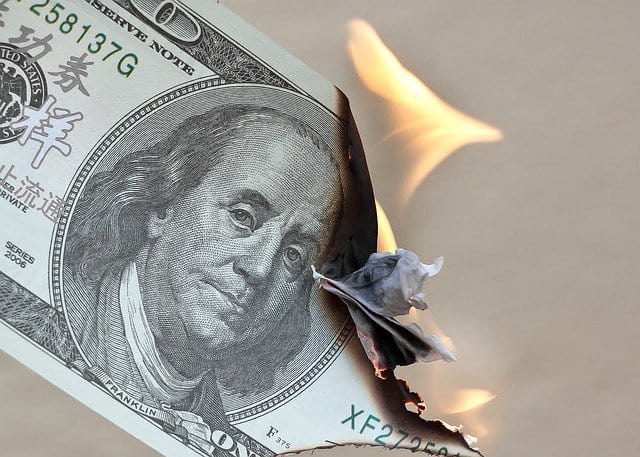When the market is volatile it can be tempting to hide your cash under a mattress until it passes. But hang on before you decide to cash out.
A True Understanding of Inflation
Inflation is the increase in prices over time, or a decrease in purchasing power. If inflation is 3% a year, an item that cost you $1.00 today, will cost $1.03 in a year.
It might be hard to believe because the news makes it seem so dire all the time, but inflation in general isn’t a bad thing and is considered healthy for an economy. It’s when inflation is too high that it is cause for concern.
That still doesn’t mean you should hold on to a bunch of cash.
Anyone who is a client of mine or reads my blog will know that I think everyone should have an emergency fund in a savings account. However, too much cash, especially in times of high inflation can have a detrimental effect on your long-term financial health.
Cash that is parked in a savings account (please don’t tell me you have huge amounts of cash in your house!) right now is earning a half percent at best, and the purchasing power of that money is rapidly decreasing. Earning a rate of return higher than inflation is the only way to maintain the purchasing power of your money.
Here’s What’s Really Happening with Your Money
What we’re talking about here is what is known as “real rate of return.” According to Investopedia, “Real rate of return is the annual percentage of profit earned on an investment, adjusted for inflation. Therefore, the real rate of return accurately indicates the actual purchasing power of a given amount of money over time.”
The math on real returns is quite simple: The return on your investment minus the rate of inflation is your real return. If your investments grew by 7% in a year and inflation was 4% that year, your real return is 3%.
It Might be Time to Tune Out
Seeing or hearing everywhere that inflation is out of control or that we are doomed to “70s level inflation” can be nerve-wracking or downright scary.
It’s important to keep in mind that news outlets want to scare you so that you’ll click or tune into their channel. But there are strategies you can implement to help you feel in more control during times of high inflation.
- Keep emergency cash in high interest savings accounts. You still won’t earn enough to keep ahead of inflation, but every little bit helps. Many online banks offer a higher interest rate than the bank with multiple corner branches. Credit unions are also a good place to check.
- Don’t have more money in emergency savings than necessary. Figuring out exactly how much to keep in an emergency fund can be tricky – and that’s something an advisor can help you with – but too much isn’t really keeping you “safer.”
Something to keep in mind as you work on planning for the future: an advisor isn’t just there to help you put money in the right place. We’re also available to answer your questions when you feel unsure about what’s happening in the market. Dealing with money can be emotional and it’s important to have a resource you can turn to when things feel uncertain.
The opinions voiced in this material are for general information only and are not intended to provide specific advice or recommendations for any individual.





